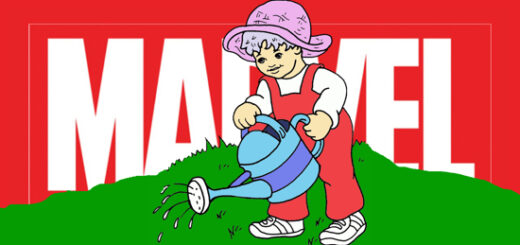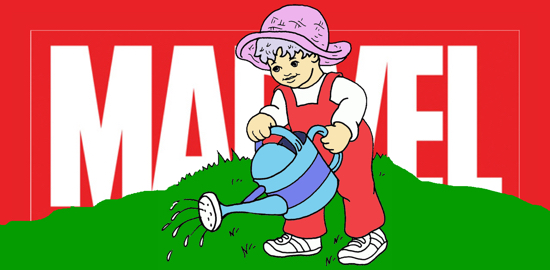Martha Thomases: Growing Opportunities
For this column, I have questions but no answers.
I realize this is a form of slacking. As a weekly contributor to ComicMix, I’m supposed to have the authority and gravitas that justifies the esteem in which I’m held by my colleagues, as well as the salary I’m paid. No answers, no paycheck.
Last week, my pal, Joe Corallo, wrote an impassioned column about Alters, a new series from AfterShock Comics about a group of superheroes that includes a transgender character. Joe was interested in the title but he confessed to a degree of fatigue caused by stories written by cis people about transitioning.
We met for tequila last week and talked about his column. While I hear his point, I think storytellers should tell the stories they want to tell. At the same time, audiences, of course, can ask for the kind of stories they want.
Apparently, Paul Jenkins, the writer and creator of the series, had somewhat similar thoughts. He reached out to Joe, and they did this interview. It touches on a lot of my obsessions. Who decides what stories get told? Who gets to tell them?
I don’t mean storytellers who are also fan, as my colleague Vinnie Bartilucci described. Fandom is its own thing, wild and free, which is as it should be. I mean people who are professional, who either work on creator-owned projects or get hired by the people who own the intellectual properties in question.
These people are, overwhelmingly, straight cis white men. They look like and talk like the people who hire them. Many of them create stories that move me and make me laugh or cry or hide under the covers with my cat because I thought I heard a noise. I’m very happy to live in a world where creators I like get to tell me the stories they want to tell.
At the same time, there are lots and lots of people who are not straight cis white men, who also tell stories that I enjoy. I like what I like. I hope you, too, enjoy getting to like what you like.
There are probably thousands (if not millions) of people of all colors and categories who also could tell me stories I would like, but I’ll never get to see them because they don’t have the same access to media as those mentioned above. I mean, I started to get work at Marvel Comics because I found out Denny O’Neil lived down the street from me, and I volunteered to water his plants when he went out of town. This is not an opportunity that anybody could have, even in the 1980s. It’s just about impossible now, not least because Denny is married and has a better support system for his botanical dependents.
Paul Jenkins wanted to tell a superhero story that includes a transwoman going through her transition. That’s the story that interests him. Joe has read a lot of stories like that (although probably without the super-powers parts) and he would like to read something different.
Who is right?
That’s the part I can’t answer. i’ve liked so much of what Paul has written over the years, and I’m looking forward to seeing what he’s going to do with Alters, especially since it seems like a terrific premise. I’m also with Joe, wanting to see more different kinds of stories.
However, I will note that the most recent issues of both Bitch Planet and The Beauty are telling non-transition stories about transwomen.
The Internet was supposed to change a lot of this. It was going to be easy and inexpensive to publish, and everyone would have equal access to the means of distribution. That didn’t happen in quite the way I wanted (perhaps I’m too old, but finding new comics and reading them online is frustrating for me). The big names tend to be the people who look like the editors, and the editors keep looking like the money people, and the corporations are overwhelmingly run by straight, white men – who also are in charge of distribution, retail, and media.
With exceptions, thank the Goddess.
We need more people telling more kinds of stories that more kinds of people will like. We need to acknowledge, with respect, that some people want to create and/or read stories that we, personally, might not want to read. Having highfaluting discussions about the socio-political implications of our choices is a wonderful thing, and my life would be diminished if I couldn’t do it.
Those opinions are not the same thing as criticism.
Are there stories you want to read about parts of life you think shouldn’t be ignored? By all means, speak up. Tell publishers what you want. Maybe try to create that story with your friends, and self-publish. That would be great.
Do you want to see more diversity in the professional comics community? So do I. Make a lot of noise. Write letters. Post columns. Ask questions at comic book conventions, especially at panels. Our industry is way behind the curve in this matter, and we all suffer as a result.
Paul Jenkins should tell the stories he wants to tell at AfterShock. And AfterShock should have more than one woman on staff and more than three women creators on their roster.












